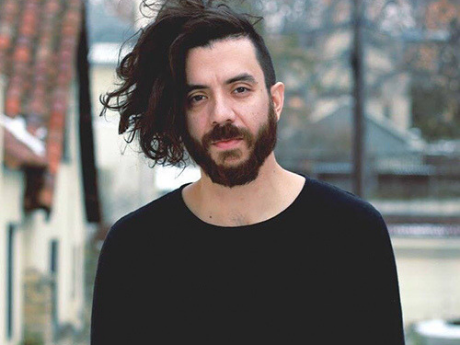Award Winners
Lucille Medwick Memorial Award - 2016
Kaveh Akbar

Heritage
Reyhaneh Jabbari, a 26-year-old Iranian woman, was hanged on October 25th, 2014, for killing a man who was attempting to rape her.
the body is a mosque borrowed from Heaven centuries of time
stain the glazed brick our skin rubs away like a chip
in the middle of an hourglass sometimes I am so ashamed
of my sentience how little it matters angels don't care about humility
you shaved your head spent eleven days half-starved in solitary
and not a single divine trumpet wept into song now it's lonely all over
I'm becoming more a vessel of memories than a person it's a myth
that love lives in the heart it lives in the throat we push it out
when we speak when we gasp we take a little for ourselves
in books love can be war-ending a soldier drops his swordto lie forking oysters
into his enemy's mouth in life we hold love up to the light
to marvel at its impotence you said in a letter to Sholeh
you weren't even killing the roaches in your cell that you would take them up
by their antennae and flick them through the bars into a courtyard
where you could see men hammering long planks of cypress into gallows
the same men who years before threw their rings in the mud who watered them
five times daily who shot blackbirds off almond branches
and kissed the soil at the sight of sprouts then cursed each other when the stalks
which should have licked their lips withered dryly at their knees may God beat
us awake scourge our brains to life may we measure every victory
by the momentary absence of pain there is no solace in history this is a gift
we are given at birth a pocket we fold into at death goodbye now you mountain
you armada of flowers you entire miserable decade in a lump in my throat
despite all our endlessly rehearsed rituals of mercy it was you we sent on
From Calling a Wolf a Wolf (Alice James, 2017). All rights reserved. Reprinted with the permission of the author.
Yona Harvey on Kaveh Akbar
"Heritage" is a delicate apostrophe that touches upon Reyhaneh Jabbari's seven-year imprisonment in Iran. Jabbari was hanged in 2014 after being accused of murdering the man who tried to sexually assault her. With armor and grace, this poem questions the fate of an Iranian woman who defends herself against attack, and, perhaps, more broadly, the fate of any woman in danger of abuse in the world, caught on the side of the road, in a dark alley, or in the alleged safety of her community, her campus, or her own house. The poem's greatest power, though, rests in the humanitarian question it asks of its readers. What is the heritage of those who live among these women, which is to say, all of us? What is our responsibility? The poem treads the troubled waters of its questions: "sometimes I am so ashamed // of my sentience how little it matters… angels don't care about humility." In its final stanzas, "Heritage," reads somewhat like an epistolary—perhaps, the kind the late poet Agha Shahid Ali might have described as apparitional and held only in the imagination, having never been physically sent or received. One might argue that Reyhaneh Jabbari, "armada of flowers," waits in another time and place for more than "the momentary absence of pain" that the world has mistaken for victory. Hence, the poem implicates us all in Jabbari's death. The poem calls its readers to action, to interrogate the spaces between victories in which women are endlessly abused and "sent on" as Jabbari was sent on without justice.
